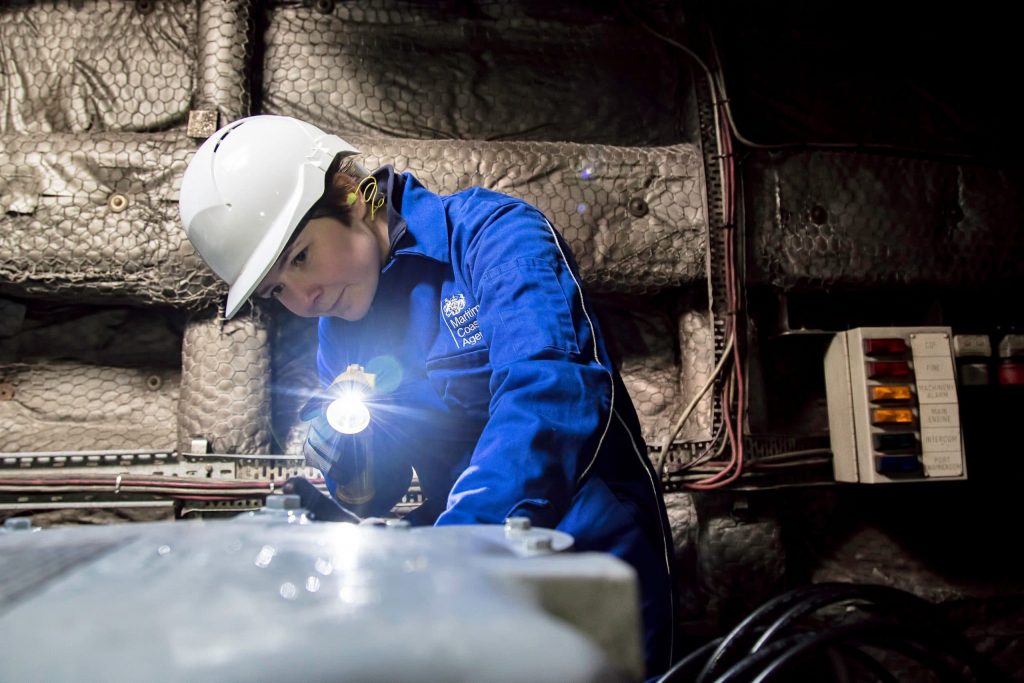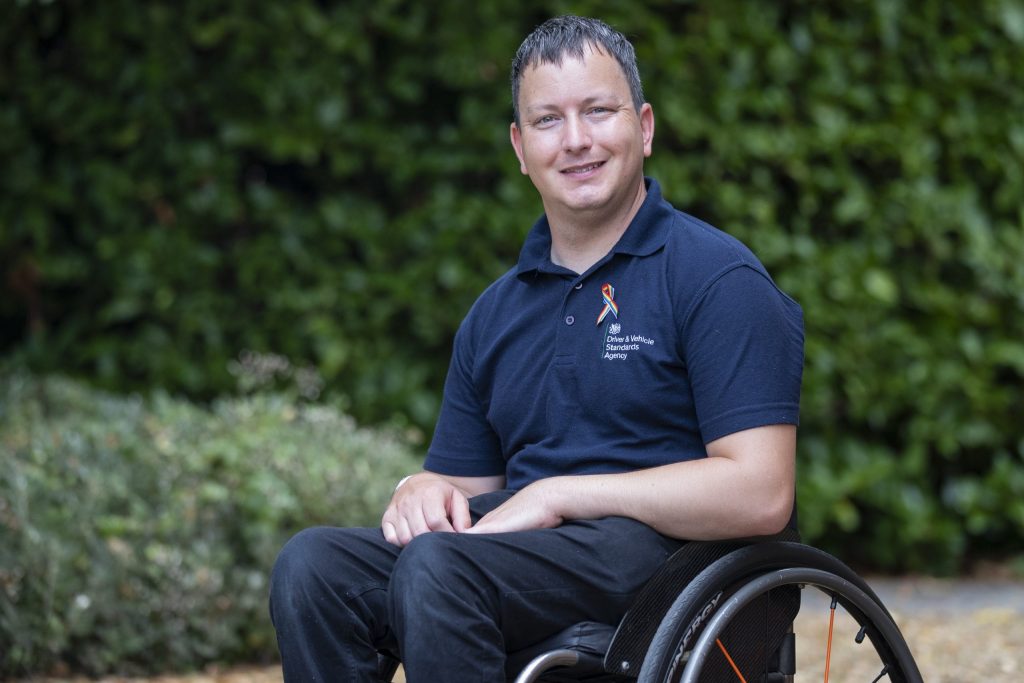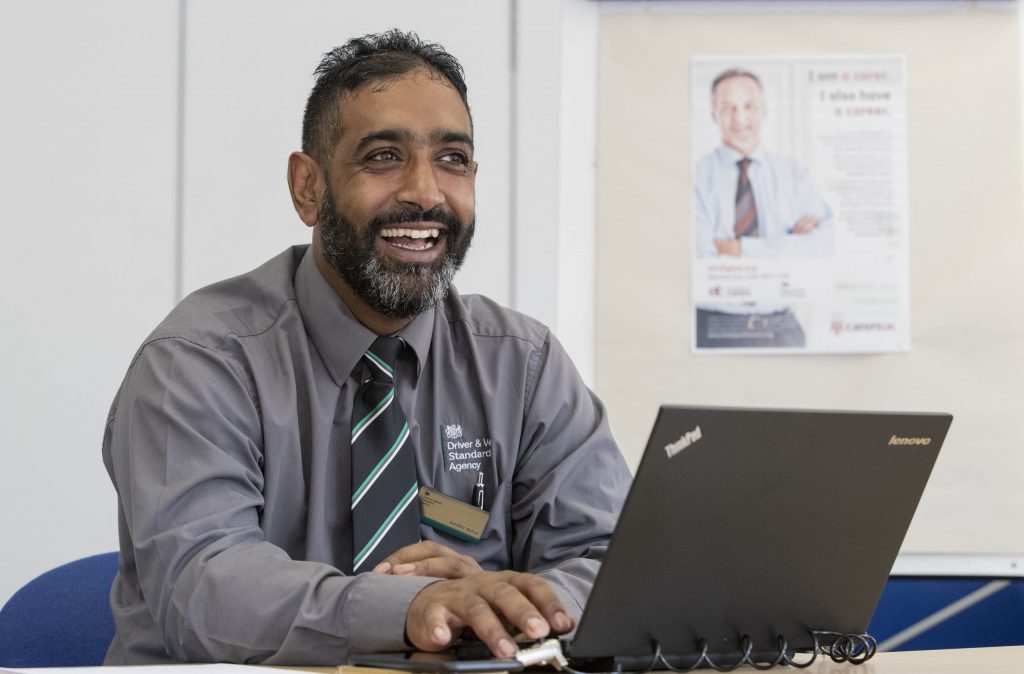We embrace diversity and celebrate our differences. Everyone is involved in making DfT an inclusive and great place to work. We actively promote a flexible approach to working whilst giving our staff opportunities to maximise their skills and achieve their full potential.
We are different people, one team.
Building an inclusive place to work
DfT is proudly committed to promoting and ensuring equality, valuing diversity and being an inclusive workplace. Our Diversity and Inclusion (D&I) strategy: “Different People, One Team” focuses primarily on what we can all do to build a truly inclusive workplace.
Different People, One Team focuses on five key points:
- We want to be one of the most inclusive departments in the Civil Service
- We want to better reflect local working populations in all grades, roles and professions – with a particular focus on senior roles where the gaps are greatest
- We want to attract, recognise and nurture diverse talent
- We want our staff networks to be amongst the best in the Civil Service and transport sector
- We want to make sure everyone in our organisations understands the importance of diversity and inclusion and how we all play a part in making it happen
You can read more about our Diversity and Inclusion strategy by clicking below.
What is diversity at DfT?

Diversity is how we recruit
Transport impacts everyone and we’re committed to increasing the representation of people from underrepresented groups in all grades, roles and professions to better reflect the people we serve.
To attract applicants from a wide range of backgrounds, we advertise DfT’s vacancies in publications and websites that most appeal to our underrepresented groups. We aim to use images and stories that demonstrate our inclusive environment, and we aim to ensure our text is accessible to all audiences. to appeal to the broadest possible range of candidates.
Within the Department for Transport there is a career path for everyone.
Diversity is removing barriers to career progression
We know that traditional approaches to recruitment create invisible barriers to us reaching the best candidates. Over the last three years, we have introduced name-blind recruitment (where hiring managers don’t see the name of the candidate), as well as mixed-sex shortlists, ‘ban the box’ (removing the requirement for candidates to declare convictions in their initial application) and people panels made up of staff at all grades.

However, there is more to do. We’re taking a practical approach to adopting cutting-edge recruitment practices. We’re testing a new ‘blended interview’ approach. Blended interviews use strength and situation-based questions alongside the standard Civil Service competency framework to allow candidates to demonstrate the breadth and depth of their skills and experience.
Diversity is our future talent
We’re committed to helping those out of employment to develop skills that would be useful in the workplace.
We’re working with charities such as the Shaw Trust. We are one of the pilot departments in the Civil Service Autism Exchange Programme for 18 to 24-year olds with autism spectrum disorder (ASD), which helps them gain the tools, confidence, and experience they’ll need to work in an office environment. We also participate in the Civil Service Summer Diversity Internship Programme (SDIP), which reaches out to university students thinking of a career with the Civil Service, and who are from backgrounds which are traditionally underrepresented.
We run many talent and development programmes and aim to make sure each intake is as diverse as it can be by encouraging staff from all backgrounds to apply and become the best they can be. One example is our popular Commercial Development Programme (CDP) which was recently shortlisted for a Civil Service ‘Developing People’ Award. With three years in challenging commercial roles and the opportunity to work towards professional qualifications, the CDP aims to equip staff at HEO level with the skills to become future commercial leaders. More recently, we are piloting a complimentary commercial apprenticeship-based programme (Commercial Apprenticeship Route, CAR) to build upon the great work of the long-standing CDP programme and ensure we continue to target diverse talent from a range of entry routes and backgrounds.
Diversity is having your voice heard
DfT is home to a vibrant range of staff networks, covering each of the protected characteristics and beyond. From our longest-running groups to our newest, we recognise the vital part networks play in making us a great place to work.
Staff diversity networks are an invaluable source of insight into the employee experience across the Civil Service and within DfT. They play an enormously important role in providing a safe space for airing concerns and representing the views and interests of their members.
Our staff networks are vital to creating an inclusive working environment, celebrating National Inclusion Week and other important calendar dates with a host of fantastic events. We have regular communications campaigns, as well as wellbeing and activity weeks running at different times of the year across the country.
Our networks are already amongst the best in the Civil Service and the transport sector but we also know that to help our mature networks continue to demonstrate excellence, and our new networks to grow, we need to invest in their success.
Most cross-Civil Service staff networks and almost all departmental diversity networks are run on a voluntary basis, with many colleagues reporting difficulty in finding the time or support from their line managers to take part in network activities. We want to build a greater voice for staff across the country in our regions, and we know staff networks that operate across the country are keen to play a part in improving diversity and inclusion.
Diversity is doing the job, regardless of circumstance
We are improving our building facilities and technology and creating a culture where people see the ability to work flexibly as the norm. Wherever possible, we offer flexible and variable working hours to help our staff have a healthy work/life balance. Many of the jobs are offered as part-time or job share, and working hours can often be varied to suit personal circumstances, or home working can be considered.
Each of DfT five executive agencies has a different approach to flexible working, so we encourage you to look at each agency’s individual offering on their designated pages.

Diversity is a job to be proud of
To us, diversity means a place of work where our employees can feel comfortable, supported and empowered to be the best version of themselves. We want each person working for DfT to feel you’re in a workplace where you belong, in a role where you know you’re making a difference to the lives of the British public.
We’re always listening, learning and getting better
While we’ve made significant progress in the past years, we’re never standing still or satisfied with our achievements when it comes to improving our working environment.
We rely on our staff network groups as an invaluable source of insight into the employee experience across the Civil Service and within DfT. They play an enormously important role in providing a safe space for airing concerns and representing the views and interests of their members.

